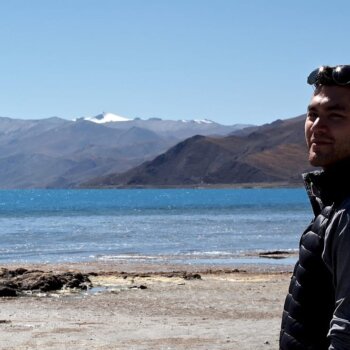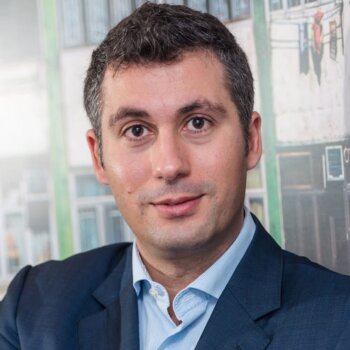(Women on Top in Tech is a series about Women Founders, CEOs, and Leaders in technology. It aims to amplify and bring to the fore diversity in leadership in technology.)
Kadri is the founder and CEO of Clanbeat – a people engagement software that makes schools desirable and modern workplaces by helping design a humane employee journey through increasing engagement and cooperation among school staff, automating HR processes from onboarding to growth and helping to reach better results through teacher-centric leadership that is focused on individual and collegial growth.
What makes you do what you do?
I see a huge dissonance between the world’s greatest workplaces and schools as a working environment. There is a very big potential to be unleashed if schools would become the greatest workplace on earth. Our society relies on it to pave the way to the next level of humanity and growth.
How did you rise in the industry you are in?
Through curiosity and willingness to make a difference. I started my professional journey managing advertising campaigns in advertising agencies Ogilvy and later McCann and found out that nice packaging and slogans help make you stand out. But to truly make a difference, you have to create services and products to be useful from the core, therefore, I moved on to service design which allowed me to strategically approach the problems in the world. Through research, data surrounding us, and empathy towards the world around me led me to co-found Clanbeat, together with brilliant and driven people to solve the problem of creating awesome workplaces. It started off as 1-on-1 tool for fast-moving companies then soon led us to the acknowledgment that covering employees’ life-cycle and managing it technically was not enough. We work with humans for humans and human factor, besides all those technicalities plays a very big role. Bringing people together into caring communities that support individual growth and inspire individuals to be better versions of themselves with the support of community and technology is the key for productivity, sustainability, innovation and making magic happen in personal and organizational level.
Why did you take on this role/start this startup especially since this is perhaps a stretch or challenge for you (or viewed as one since you are not the usual leadership demographics)?
First of all, I like to explore unknown territories. And I like challenges. Most of the great things in life happen outside our comfort zones. Acknowledging this fact makes everything easier.
Do you have a mentor that you look up to in your industries or did you look for one or how did that work?
I do have a close friend in HR tech industry whom I met in San Francisco and we have regular check-ins as we are following the same road. We are both founders, head of products grown into CEOs and this is mutual mentorship. I do not have a mentor in a classical sense but we keep doing 1-on-1’s between my people and we are mentors to each other. Being at the top is supposed to be lonely but I do not feel like that because I am surrounded by wonderful people in my team whom I consider smarter as I am, from whom I have lots to learn. Also, I come from a very small but highly startup-minded country called Estonia, where we have a close community of founders called #estonianmafia. We share our highs and lows on regular basis and we know each other’s milestones and challenges. It is easy to reach out to them especially with very specific problems and get insights in ways others have already solved it. Every situation is unique but the community gives perspective on solving things your own. That is also one of the qualities I want to bring into education leadership. The power of the community!
Now as a leader how do you spot, develop, keep, grow and support your talent?
We are living our own philosophy and see a human as a whole and not just a work machine. Aside from our regular 1-on-1’s with each other we are also in the process of having outside help who neutrally concentrates in a person; we call them “Personal Success Coach” and they cover every aspect of a human being. I am pleased to pay for them because happy and well-balanced people with strong self-management skills bring their best to the table and together we create more awesome opportunities. I truly believe that attracting the best talent is internal – especially if you have a good company culture that is focused on developing your people. The success of people who works with you is the best form of advertising you can make use of to attract new talent. Make your people live the best lives they can and help them develop to their fullest potential. This is also the best way to attract new talent: an attractive workplace and communicate it to the outside world. Unlimited paid vacations, personal coaching and being a part of a change we are making through fair compensation and shares package helps as well.
Do you consciously or unconsciously support diversity and why?
I do not believe in diversity quotas because that is too one-dimensional. People are much more complicated and that’s what makes it wonderful. A human is a human. Our philosophy in building Clanbeat supports diversity heavily. The same thing goes with helping find like-minded people; we help to bring out the uniqueness in everyone and help others to understand that. Diversity can truly work if we have empathy and deeper understanding. If we label people by slogans and try to fit them into quotas without understanding where they are coming from, we have lost an opportunity engaging that talent. Diversity creates innovation, and that is inspiring.
What is your take on what it takes to be a great leader in your industry and as a general rule of thumb?
Being a leader in my industry, which is information technology, requires empathy to understand how technology can improve people’s everyday lives. Seeing human behind numbers and understanding what kind of lives people are leading with their joys and challenges is what makes a great leader. Every leader’s greatest challenge is to create engagement – in their employees, partners, and customers. Without truly understanding what motivates people in core level, it is not possible.
Advice for others?
I want to focus on people living out their true selves and living in love, not fear. If more people would do things based on love, not fear, the world would be a more advanced and a beautiful place to be. And with fewer problems also! Because living in fear forces you to make wrong decisions and spend your energy in wrong places. That is a wasted resource to the world. Living your life in love requires an understanding of yourself, others and building relationships that matter.
If you’d like to get in touch with Kadri Tuisk, please feel free to reach out to her on [email protected]





























